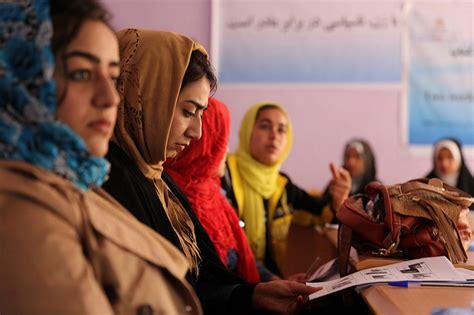
Afghanistan: Women reiterate call for access to schools, universities
More than two years have passed since Taliban banned girls from studying beyond sixth grade in Afghanistan and there is no sign of reopening the schools to girls studying above sixth grade.
Several women in Afghanistan have reiterated the need to allow them to study in schools. The students noted that schools have remained shut for over two years, and they were not award of future plans to reopen schools, Afghanistan-based TOLO News reported. More than two years have passed since Taliban banned girls from studying beyond sixth grade in Afghanistan and there is no sign of reopening the schools to girls studying above sixth grade. 16-year-old girl Mursal said life has faded over the past two years and her dreams have been ruined, according to TOLO News report.
“I’ve lost my spirit because I have no hope for the future, and the color of my life has actually changed when they closed schools. My worries grow every day as to whether or not schools will open,” TOLO News quoted Mursal as saying. Meanwhile, some other students urged the Taliban to not take away opportunities of women to work and train in Afghanistan. Maryam, a student, called on Taliban to provide work and education opportunities for women so that they are educated and discouraged.
Another student Marhaba said, “I want the Islamic Emirate to open the doors of schools and universities in the framework of sharia.” Meanwhile, Taliban-appointed Deputy Minister of Foreign Affairs shared two images stressing the need to educate women in Afghanistan. His remarks come despite the Taliban’s continued restrictions on the education of women in Afghanistan. Sher Mohammad Abbas Stanikzai said, “Education is something that no one can take away from you. A good education can change anyone, and a good teacher can change everything.” He made the remarks as it has been more than 760 days since Taliban shut schools to girls above sixth grade in Afghanistan.
Firoza Amini, women rights activist, said, “When this restriction is imposed on girls, and schools and universities are closed, girls’ depression, despair and demotivation continue to rise, and it causes further harm,” TOLO News reported. Since the Taliban took over Afghanistan, they have issued several decrees which impose restrictions on women. Afghanistan’s women have faced numerous challenges since the Taliban returned to power in 2021. Girls and women in the war-torn country have no access to education, employment and public spaces.
Earlier this month, the European Union Parliament passed a resolution, criticising the severe violation of human rights in Afghanistan and the “gender apartheid policy of the Taliban”, reported Khaama Press. The EU noted that since the Taliban took control over Afghanistan, there has been a surge in suppression of women, civil society, human rights defenders and human rights violations.The EU Parliament called on the Taliban to honour their commitments regarding Amnesty, Khaama Press reported.
Moreover, the resolution got the support of the majority, with 519 votes in favour, 15 against it and 18 abstained.They also condemned the increase in human rights violations in Afghanistan, particularly arbitrary detentions, extrajudicial killings, forced disappearances, and torture by former security forces. The EU in their resolution further demanded to withdraw severe restrictions on women and girls’ rights in accordance with Afghanistan’s international commitments, condemning the Taliban’s gender apartheid policy, according to Khaama Press report.
The EU Parliament strongly condemned the Taliban for their hideous human rights violations. They particularly cited the “brutal persecution of Christians” and religious minorities. Moreover, the EU’s move is part of their campaign to eliminate religious and ideological diversity in Afghanistan. Furthermore, the Parliament urged the European Union and its member nations to support Afghan civil society, Khaama Press reported. They called for increased funding and protective measures for human rights defenders in the region.
Source » devdiscourse.com





